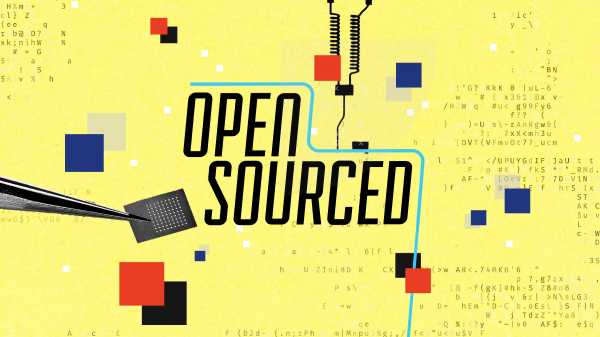
Join the Open Sourced Reporting Network
Help us report on the real consequences of data, privacy, algorithms, and AI.
By
Lauren Katz@Laur_Katz
Dec 10, 2019, 8:00am EST
Share this story
-
Share this on Facebook
-
Share this on Twitter
-
Share
All sharing options
Share
All sharing options for:
Join the Open Sourced Reporting Network
-
Reddit
-
Pocket
-
Flipboard
-
Email
This story is part of a group of stories called

Uncovering and explaining how our digital world is changing — and changing us.

Vox and Recode take a wide look at how technology is changing — and changing us in the process. Open Sourced will zoom in even further.
The new frontiers of data, privacy, algorithms, and artificial intelligence are closed-box ecosystems — often scary, mystifying, or simply impenetrable — built by people who speak and code in a very different language. Our year-long reporting effort will illuminate what these systems are, how they’re built, why they matter, and their potential risks and benefits.
Due to the nature of these systems, one person’s experience can be radically different from another’s, which means that we’ll need your help to truly explain them well. We might ask you to send us a screenshot of the targeted ads you see on Instagram, or a list of the topics Twitter has identified as being of interest to you. We might want to know if you’ve been seeing a slew of ads from 2020 candidates on your phone, or if LinkedIn seems like it’s trying to tell you something.
Join the Open Sourced Reporting Network for updates on how to get involved with our reporting and be the first to know what we discover throughout the year, along with insights from our reporters on the process.
We’re kicking off the reporting network by gathering your questions and concerns about your personal privacy and the technologies you use every day. We want to hear your questions about things like: How does the parking garage track your car’s parking spot? Where is Facebook storing the data from its facial recognition technology? How does Google Maps seem to always know where you’re going?
In line with the mission of this project to reveal the hidden aspects of tech, we’ll be extra transparent with our own crowdsourcing by explaining where your responses go and what we’re doing with the information.
The language in the Google Form below has been reviewed by our legal team and follows Vox Media’s own privacy policy. Your responses are fed into a Google spreadsheet connected to the form. We send that spreadsheet over to the Vox Media IT team, which adds further privacy protections.
“We monitor for changes to access and [for] activities such as downloading and sharing,” says Isaac Teklehaimanot, Vox Media’s director of information security. “If we notice activities that seem anomalous or sharing with individuals outside the scope defined by the stakeholders, we notify the owner.”
Another aspect of privacy protections that Isaac and the IT team helped us think about is the European Union’s General Data Protection Regulation, or GDPR. It’s a 2018 privacy law designed to make sure users know about (and understand) the data that companies collect about them, and that they consent to sharing it.
Basically, if you’re from the EU and interested in filling out our form, you have to opt in to give us your information and “expressly agree to Vox Media’s GDPR terms for all your existing agreements with Vox Media,” according to our privacy policy. You can find the full text of that policy and more details on your individual rights here.
The spreadsheet remains private, with access granted only to a handful of individuals within our company who need to see your responses: reporters, editors, IT support, and your friendly community manager (that’s me). Google, of course, has its own terms of service for Google Drive, which includes policies like “We will not change a private document into a public one” and “You can take your data with you if you choose to stop using Google Drive.” Google dives further into your privacy controls and what information it collects in its extensive privacy policy.
We will use a third-party email platform called Campaign Monitor. Your first name, last name, and email address you provided to us in the form will be uploaded into that system, so that we can send you emails. You can read Campaign Monitor’s privacy policy here.
Now that you know why we need your help — and what we’re doing with the info you share with us — please join our community of people helping to reveal the hidden consequences of tech.
Watch this
Open Sourced is made possible by the Omidyar Network. All Open Sourced content is editorially independent and produced by our journalists.
Sourse: vox.com






